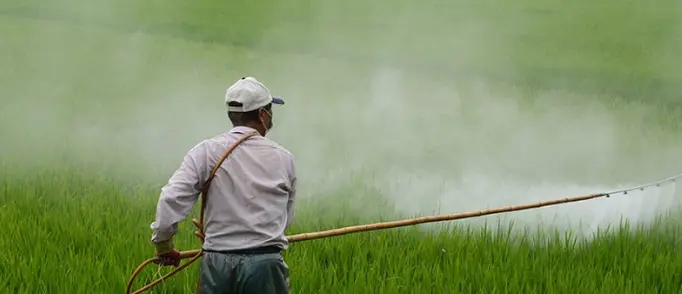Pesticides and the Potential Cancer Link
Pesticides are a double-edged sword. They protect crops from pests, ensuring a steady food supply, but concerns linger about their potential impact on human health, particularly the increased risk of cancer. Let’s delve into the science behind this complex issue.
A Cause for Concern:
-
The Chemical Connection: Certain types of pesticides, particularly organochlorine and organophosphate pesticides, have been linked to an increased risk of various cancers in some studies. These chemicals can linger in the environment and potentially enter our bodies through contaminated food, water, or even inhalation.
-
From Farm to Fork: Agricultural workers who regularly handle and apply pesticides are considered a high-risk group. However, studies also suggest that even low-level exposure through consuming produce treated with pesticides might contribute to an increased cancer risk.
-
The Weight of Evidence: The International Agency for Research on Cancer (IARC), part of the World Health Organization (WHO), classifies some organophosphate insecticides as “probably carcinogenic to humans” and some organochlorine insecticides as “possibly carcinogenic to humans.”
Navigating the Maze of Research:
-
The Complexity of Cancer: Cancer is a complex disease with various contributing factors. Attributing a specific cancer case solely to pesticide exposure is challenging. Genetics, lifestyle choices, and other environmental factors also play a role.
-
Inconclusive Studies: While some studies suggest a link between pesticides and cancer, others show no clear connection. More long-term, large-scale studies are needed to definitively establish a cause-and-effect relationship.
-
The Importance of Dosage: The level and duration of exposure likely play a significant role. Acute high-dose exposure carries a higher risk than chronic low-dose exposure, but the long-term effects of low-dose exposure are still under investigation.
Taking Precautions:
-
Organic Options: Choosing organic produce whenever possible can help reduce exposure to pesticide residues.
-
Wash Wisely: Washing fruits and vegetables thoroughly before consumption can remove some pesticide residue.
-
Support Sustainable Practices: Advocate for and support sustainable agricultural practices that minimize pesticide use.
The Road Ahead:
The research on the link between pesticides and cancer is ongoing. While a definitive answer remains elusive, the potential risks warrant a cautious approach. By implementing preventative measures and supporting sustainable practices, we can strive for a healthier food system and potentially reduce our exposure to potentially harmful chemicals.
Remember, this blog is for informational purposes only and should not be construed as medical advice. Always consult with a healthcare professional for personalized guidance.


Comments are closed, but trackbacks and pingbacks are open.